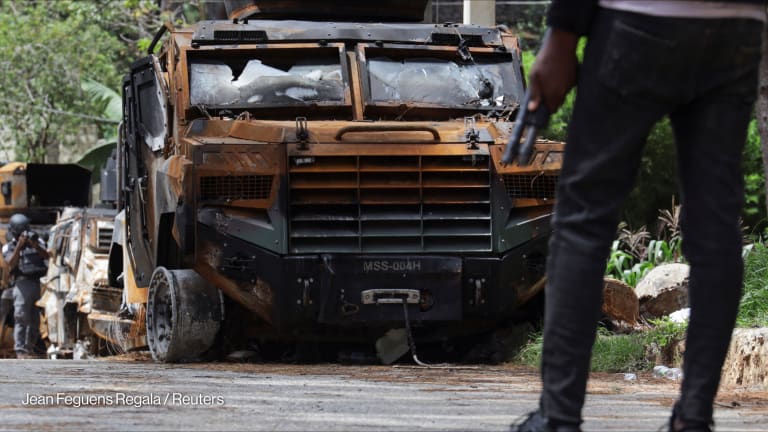As it scrambles to ensure cholera doesn’t surge in Haiti the aftermath of Hurricane Matthew, the United Nations is coming up short on funds.
A $120 million emergency flash appeal for relief and recovery work remains only 28 percent funded, now more than three weeks after the storm hit Haiti on Oct 4. Even more questions linger over how the U.N. will fund a planned $400 million Multi-Partner Trust Fund, half of which would go toward material compensation for victims of cholera and their communities. The fund is meant to complement U.N. Secretary-General Ban Ki-Moon’s acceptance of responsibility for bringing cholera to Haiti following an earthquake in 2010.
Pulled between pressing needs, the U.N.’s moral imperative to end cholera, and inadequate resources, David Nabarro’s job is that of a tightrope walker. He is the U.N. secretary-general’s special adviser leading the response to the Haiti cholera crisis, with previous experience tackling the Ebola outbreak in West Africa, bird flu and a host of other health and development issues. Nabarro is also one of six candidates in the running to lead the World Health Organization.








